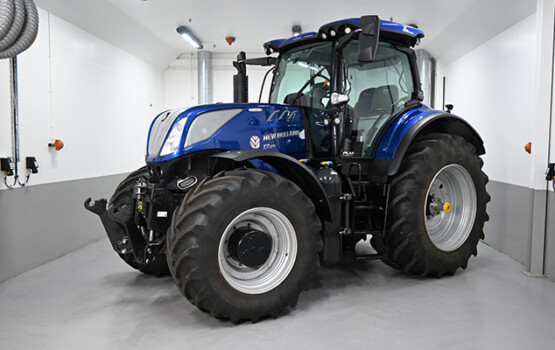Portal for more climate-friendly mobility
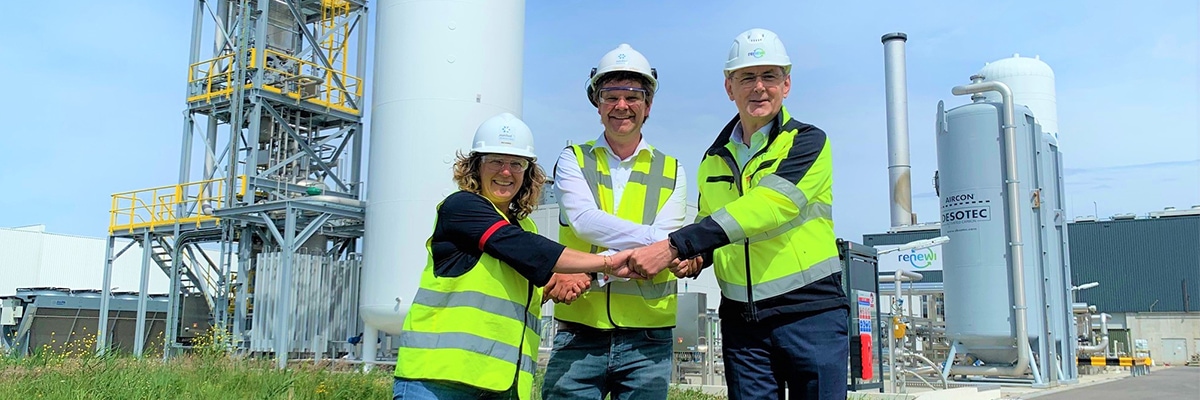
1 million kilos of bio-LNG
In the Netherlands, Nordsol’s bio-LNG facility has already been able to produce sustainable fuel for around four million kilometres of truck consignments.
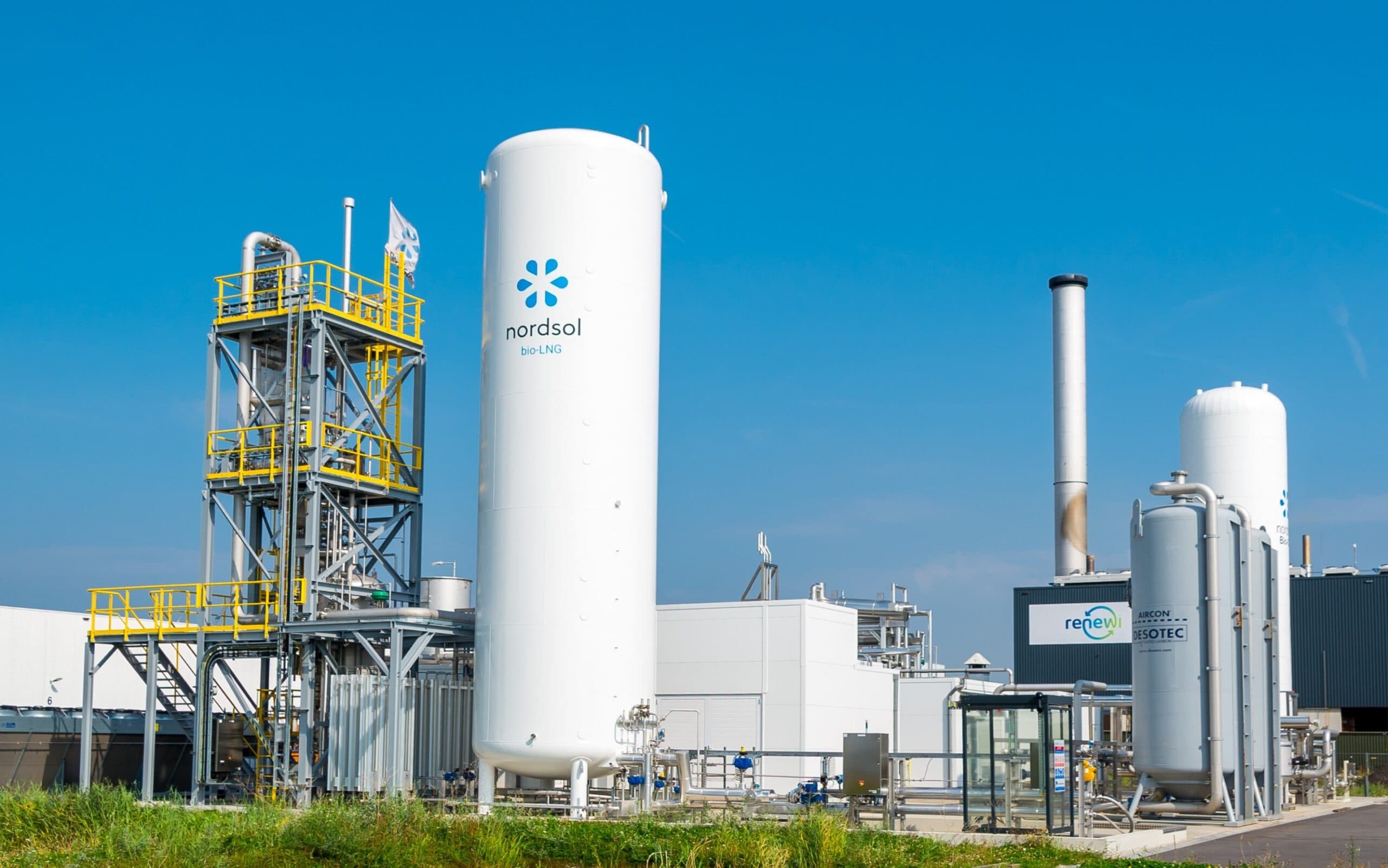 Source: Nordsol
Source: Nordsol
In October 2021, King Willem-Alexander of the Netherlands opened the first bio-LNG plant near Amsterdam. Now the plant can already record the first production milestone: it produced a million kilograms of bio-LNG. For the three initiators, Nordsol, Renewi and Shell, this is also important proof that sustainable heavy goods transport by road is already possible today. This is because liquefied biogas allows trucks powered by LNG to travel around four million kilometres in an almost CO2-neutral way.
As a renewable substitute for fossil LNG (liquefied natural gas), bio-LNG offers similar advantages to LNG compared to diesel, including lower carbon dioxide and nitrogen oxide emissions, significantly lower particulate emissions and also significantly lower engine noise. Depending on the raw material and production method, the greenhouse gas balance of bio-LNG may even be negative.
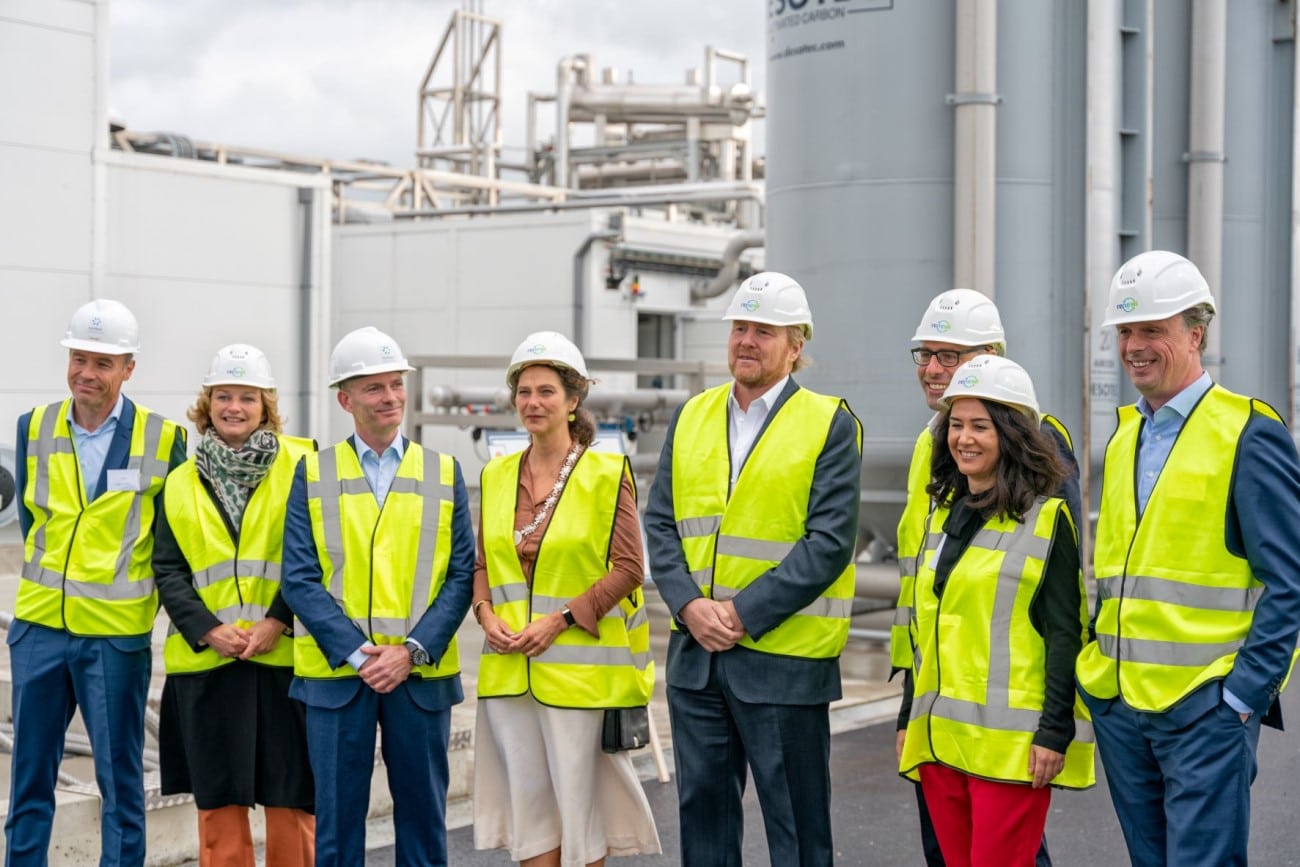 King Willem-Alexander of the Netherlands (5th from left) at the opening of the first bio-LNG plant near Amsterdam in October 2021. Source: Nordsol
King Willem-Alexander of the Netherlands (5th from left) at the opening of the first bio-LNG plant near Amsterdam in October 2021. Source: Nordsol
Not surprisingly, bio-LNG, just like biogas, which can be used in the various CNG vehicles, is therefore a key element for an efficient, sustainable and circular economy and mobility strategy. The biogas from which Nordsol finally produces bio-LNG comes from organic waste from supermarkets collected by Renewi. The Dutch recycler collects around 14 million tonnes of waste every year, 89% of which is recycled or used for energy recovery. Renewi processes the organic residues into biogas by means of anaerobic fermentation.
This biogas is then processed into bio-LNG at Nordsol’s bio-LNG plant. The plant officially passed the acceptance test conducted by the Nordsol project organisation team in April and was handed over to the company. It produces 3.4 kilotons of bio-LNG per year and also absorbs 6.3 kilotons of biogenic CO2. The third partner in the group, the energy company Shell, then ensures that the various heavy-duty customers at the LNG filling stations in the Netherlands can refuel this sustainably produced bio-LNG, thus enabling their consignments to be carried out in a virtually CO2-neutral manner. (pd/jas, 2 June 2022)
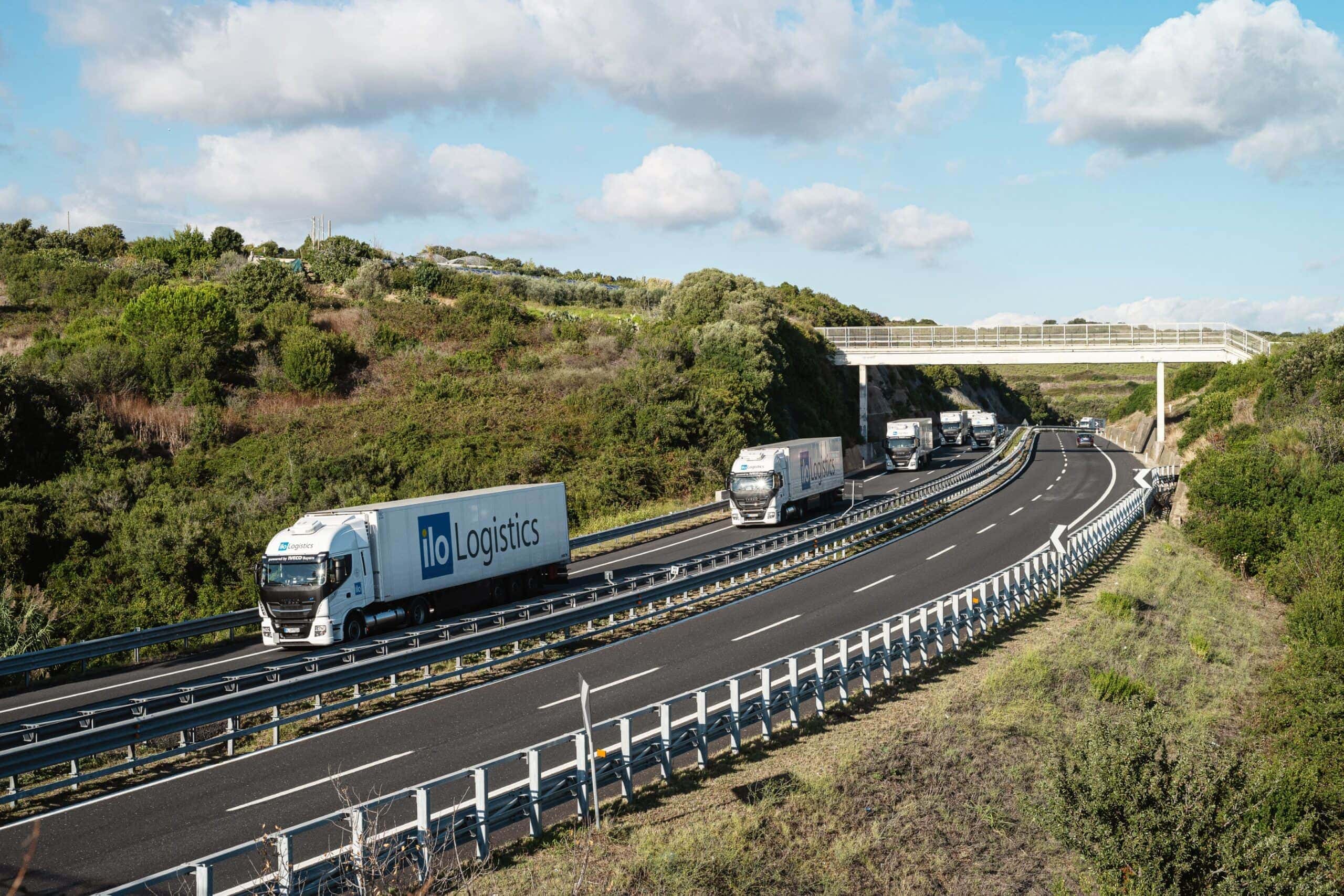 Trucks can travel around four million kilometers with LNG propulsion and bio-LNG from the Nordsol plant in their tanks in a virtually CO2-neutral manner. Source: Future Gas Jonas Friedrich
Trucks can travel around four million kilometers with LNG propulsion and bio-LNG from the Nordsol plant in their tanks in a virtually CO2-neutral manner. Source: Future Gas Jonas Friedrich
You might also be interested in
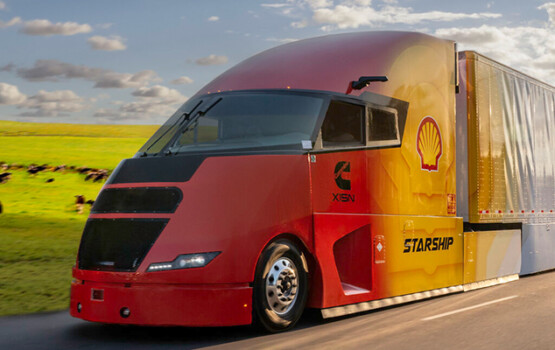
Shell Starship on record hunt
